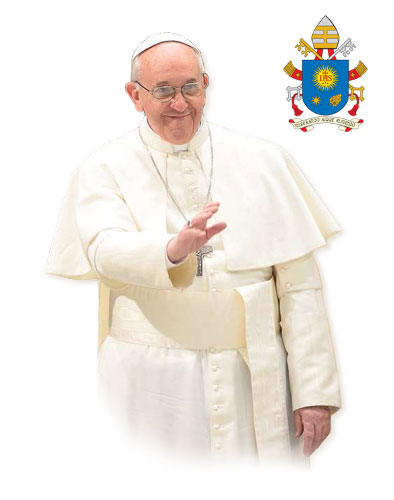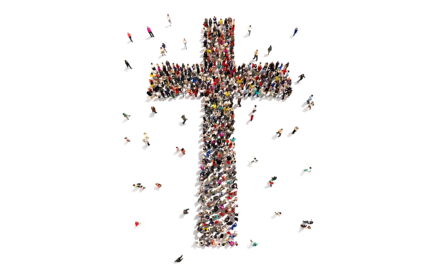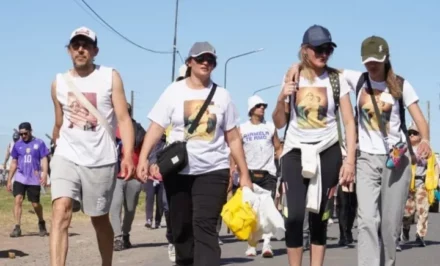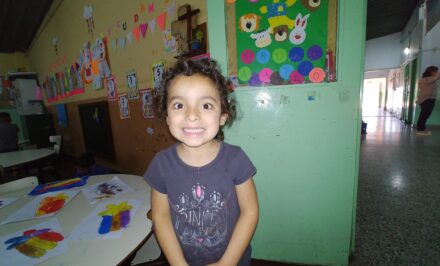 org. Every part of the Church, and many others outside of her – believers or non-believers – have received Pope Francis` clear and hope-filled words. They are also words that motivate us to assume the responsibility we all have to build a world in accordance to the Will of God, in the strength of the Spirit and through the way of Christ. Cardinals and bishops, priests, men and women religious, novices and seminarians, families, the youth and elderly, communities and institutes have received this challenge to go out “onto the street” to take – not a utopian hope – but concrete deeds in living evangelization projects to all men and women wherever they may be. And if they are on the “outskirts” then we have to go there, with all the risks and dangers it may include. He repeats to us constantly: I prefer an injured church, because she goes out to serve, to a Church that is sick because of her self-absorption. Testimony to this can be found in the section of Schoenstatt.org where on a weekly basis texts are selected which motivate us on our own pilgrimage toward the 2014 Jubilee. Undoubtedly, because we are the Church, these words are also directed to us. How happy must our Father not be with this missionary impetus which is given to us from the very heart of the Church! (Fr. José María García)
org. Every part of the Church, and many others outside of her – believers or non-believers – have received Pope Francis` clear and hope-filled words. They are also words that motivate us to assume the responsibility we all have to build a world in accordance to the Will of God, in the strength of the Spirit and through the way of Christ. Cardinals and bishops, priests, men and women religious, novices and seminarians, families, the youth and elderly, communities and institutes have received this challenge to go out “onto the street” to take – not a utopian hope – but concrete deeds in living evangelization projects to all men and women wherever they may be. And if they are on the “outskirts” then we have to go there, with all the risks and dangers it may include. He repeats to us constantly: I prefer an injured church, because she goes out to serve, to a Church that is sick because of her self-absorption. Testimony to this can be found in the section of Schoenstatt.org where on a weekly basis texts are selected which motivate us on our own pilgrimage toward the 2014 Jubilee. Undoubtedly, because we are the Church, these words are also directed to us. How happy must our Father not be with this missionary impetus which is given to us from the very heart of the Church! (Fr. José María García)
![]()
WEEK 31/2014
The great threat in today’s world is the loneliness of hearts oppressed by greed.
Tweet from 22.07.2014

At times we are in a great hurry to judge, to categorize, to put the good here, the bad there. God, however, knows how to wait. With patience and mercy he gazes into the “field” of life of every person; he sees much better than we do the filth and the evil, but he also sees the seeds of good and waits with trust for them to grow. God is patient, he knows how to wait.
Angelus, 20.07.2014
The seed fallen on the path stands for those who hear the message of the Kingdom of God but do not understand it; thus the evil one comes and snatches it away. Indeed, the evil one does not want the seed of the Gospel to sprout in the heart of man. This is the first analogy. The second is that of the seed fallen among the stones: this represents the people who hear the word of God and understand it immediately, but superficially, because they have no roots and they are unsettled; and when trials and tribulations arise, these people give up immediately. The third case is that of the seed fallen among the briars: Jesus explains that this refers to the people who hear the word but they, because of the cares of the world and the seduction of riches, are choked. Finally, the seed fallen on fertile soil represents those who hear the word, accept it, cherish it and understand it, and they bear fruit. The perfect model of this good soil is the Virgin Mary. This parable speaks to each of us today, as it spoke to those who listened to Jesus 2,000 years ago. It reminds us that we are the soil where the Lord tirelessly sows the seed of his Word and of his love. How do we receive it? And we can ask ourselves: how is our heart? Which soil does it resemble: that of the path, the rocks, the thorns? It’s up to us to become good soil with neither thorns nor stones, but tilled and cultivated with care, so it may bear good fruit for us and for our brothers and sisters.
Angelus, 13.07.2014
And it will do us good not to forget that we too are sowers. God sows good seed, and here too we can also ask ourselves: which type of seed comes out of our heart and our mouth? Our words can do much good and also much harm; they can heal and they can wound; they can encourage and they can dishearten. Remember: what counts is not what goes in but what comes out of the mouth and of the heart. Our Lady teaches us, by her example, to understand the Word, cherish it and make it bear fruit in us and in others.
Angelus, 13.07.2014
When man loses his humanity, what can we expect? What happens is what I would call in common parlance: a policy, a sociology, a “throwaway” attitude. One discards what is not needed, because man is not at the centre. And when man is not at the centre, another thing is at the centre and man is at the service of this other thing. The aim therefore is to save man, in the sense that he may return to the centre: to the centre of society, to the centre of thought, the centre of reflection. To bring man once again to the centre. And this is laudable work, and you are doing it. I thank you for this work. You study, reflect, hold these conferences for this, so that man is not thrown away. Children are thrown away, because the birth rate — at least here in Europe — everyone knows it; the elderly are thrown away, because they are of no use. And now? A generation of young people is being thrown away, and this is most serious! I saw a figure: 75 million young people, under 25 years of age, without work. The young “neither-nors” neither studying nor working. They don’t study because they don’t have the means, they don’t work because there are no jobs. More waste. What will be the next thing thrown away? We must stop before it’s too late, please! I thank you. I thank you for the help that you give with your work, with your reflection, to restore this unbalanced situation and to recover man and bring him back to the centre of reflection and the centre of life. He is the king of the universe! And this is not theology, it is not philosophy — it is human reality. With this we will go forward. Thank you, thank you truly. Thank you!
To the participants at the International Seminar on the Pope’s Proposal “Towards a more inclusive economy,” Casina Pio IV at the Vatican, Saturday 12 July 2014
Jesus promises to give rest to everyone, but he also gives us an invitation, which is like a commandment: “Take my yoke upon you, and learn from me; for I am gentle and lowly in heart” (Mt 11:29). The “yoke” of the Lord consists in taking on the burden of others with fraternal love. Once Christ’s comfort and rest is received, we are called in turn to become rest and comfort for our brothers and sisters, with a docile and humble attitude, in imitation of the Teacher. Docility and humility of heart help us not only to take on the burden of others, but also to keep our personal views, our judgments, our criticism or our indifference from weighing on them. Let us invoke Mary Most Holy, who welcomes under her mantle all the tired and worn out people, so that through an enlightened faith, witnessed in life, we can offer relief for so many in need of help, of tenderness, of hope.
Angelus, 06.07. 2014
![]()













